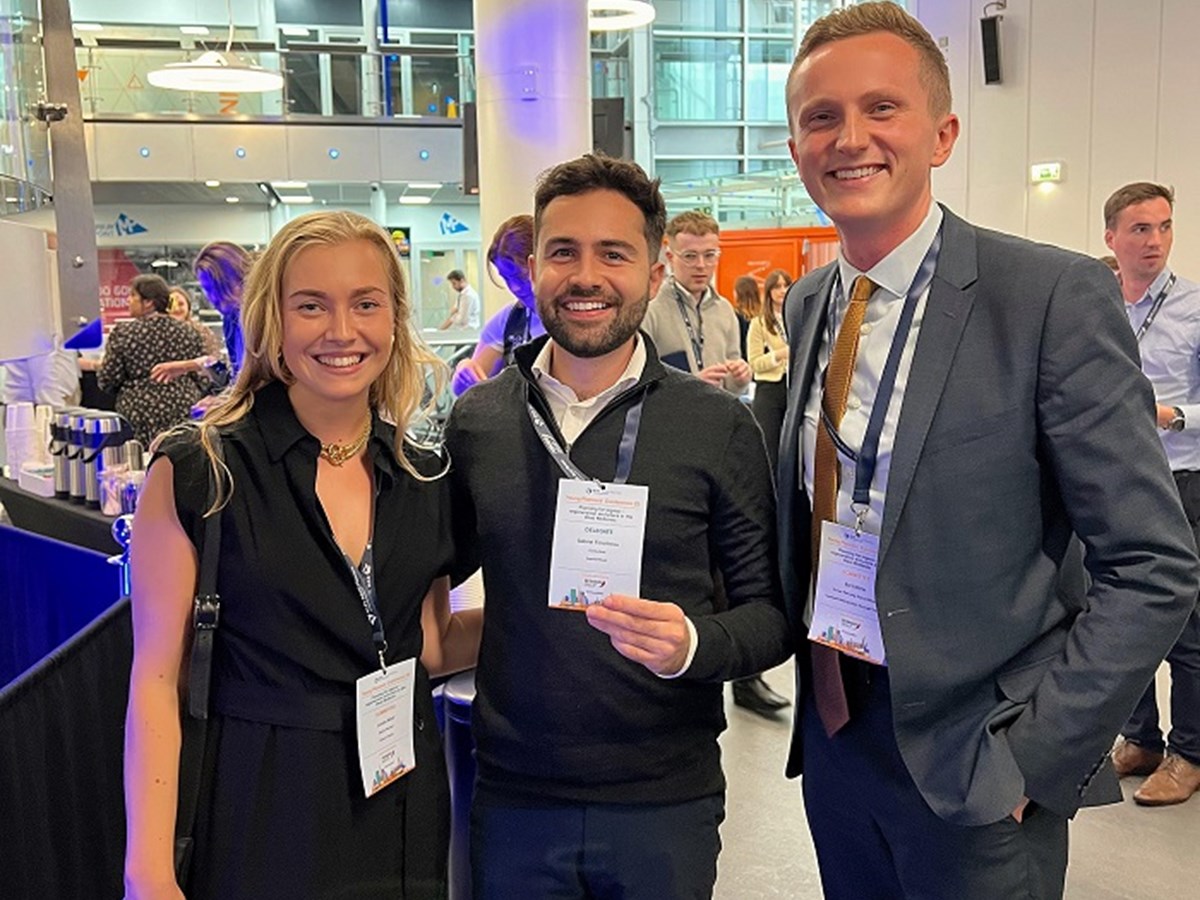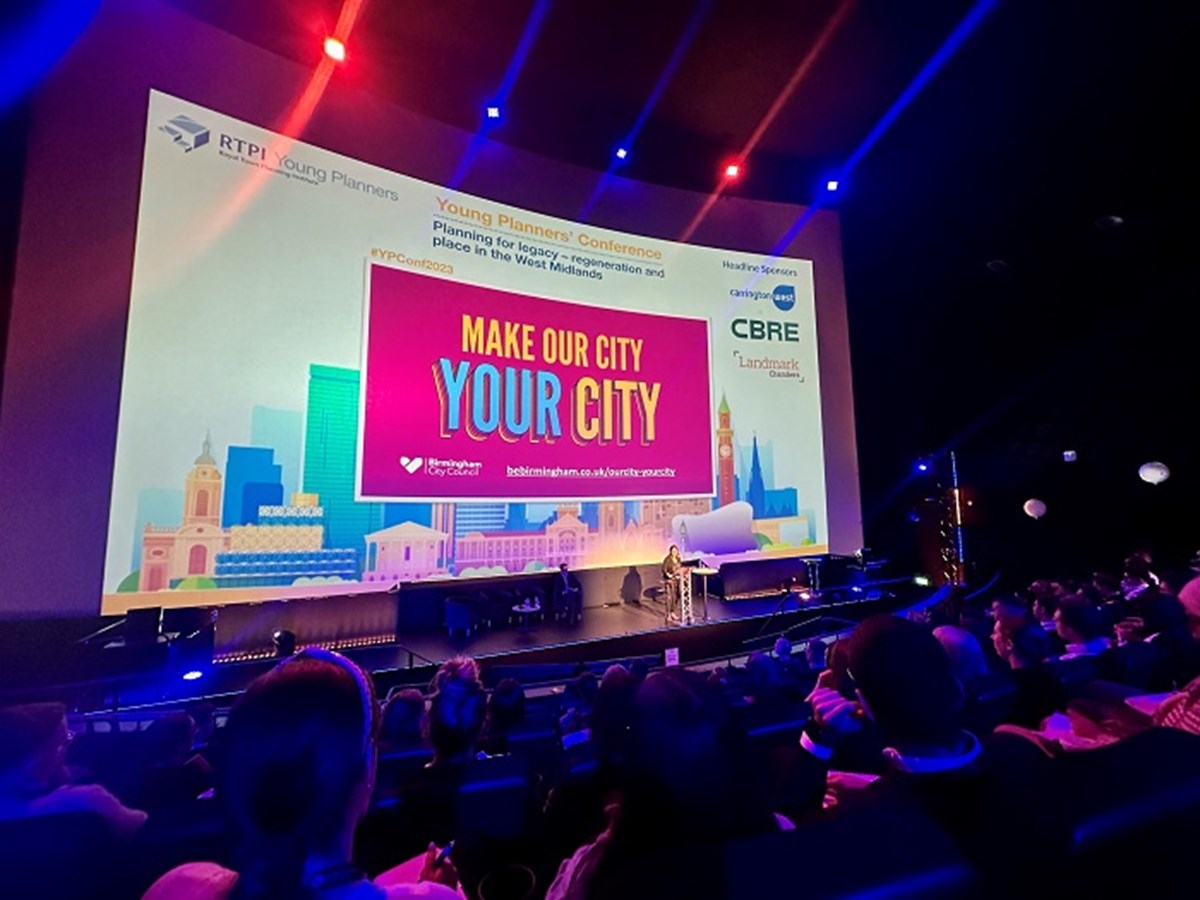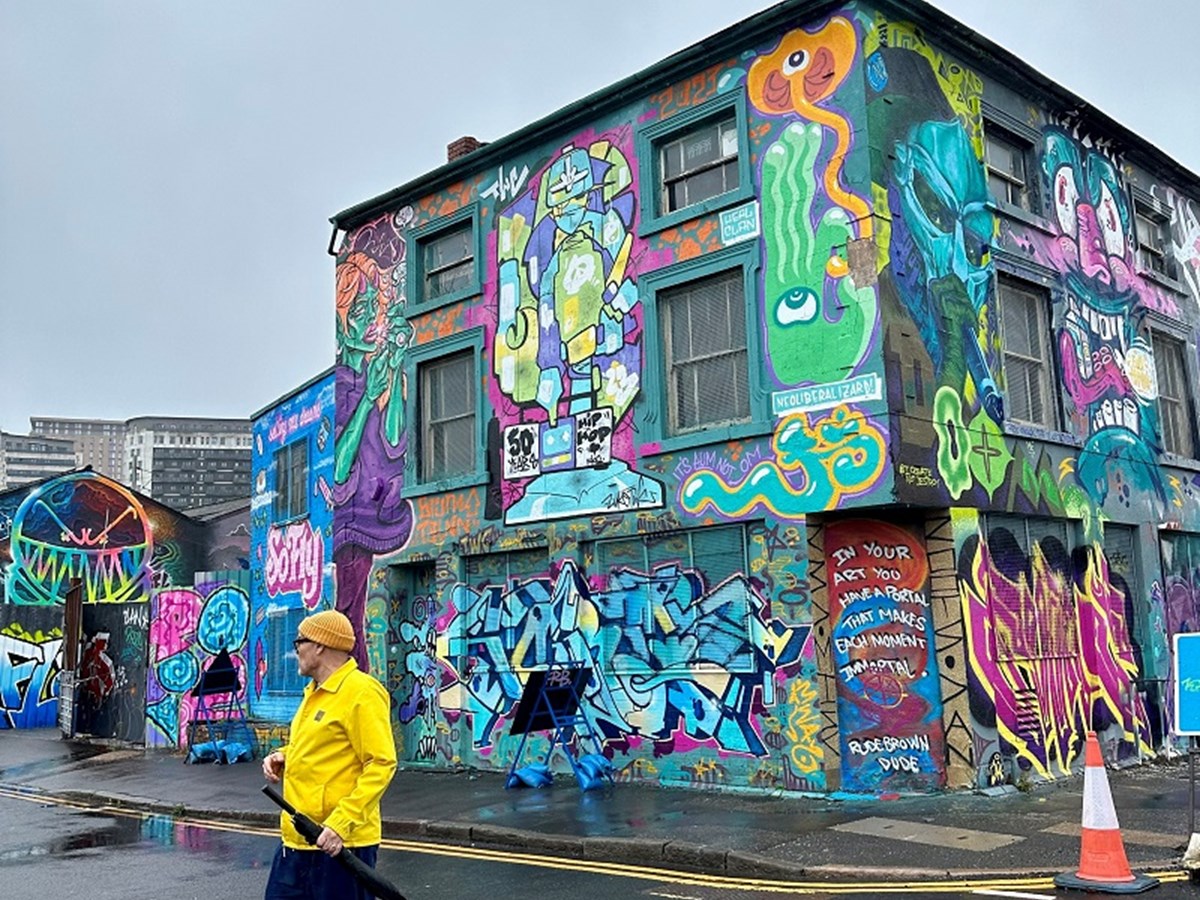Gabriel Timotheou is a Consultant at AspinallVerdi – Property Regeneration Consultants
Amid the anticipation surrounding the Young Planners' Conference in Birmingham, tickets sold out swiftly, leaving me without a ticket. Fortunately, the RTPI organised a photo competition with a free conference ticket up for grabs. Eager to be a part of this event, I decided to take my chances, and to my sheer delight, I emerged as the lucky winner, securing a seat at the conference.
The Young Planners' Conference in Birmingham was a remarkable event that delved into the ever-evolving world of urban planning and regeneration. The conference, featuring a diverse array of topics and distinguished speakers, underscored the pivotal role of planners in shaping the future of our cities, with a focus on Birmingham.

Gabriel (centre) with RTPI West Midlands Young Planner Committee members Louisa Ward and Bart Shirm

Delegates at the packed auditorium
A journey through Birmingham's urban transformation
Prominent figures in the field, including Richard Brown from CBRE, Kevin O'Shea from Carrington West, and Jenny Wigley KC from Landmark Chambers, warmly welcomed attendees. Their opening remarks set the stage for a profound exploration of urban regeneration in Birmingham.
One session that stood out was "Masterplanning for Legacy - Transforming Birmingham Through Regeneration Projects." This session provided a retrospective look at Birmingham's transformation, tracing its journey from a concrete jungle to a vibrant urban centre. Maria Dunn, Head of Development Policy at Birmingham City Council, highlighted key milestones, including the influential Big City Plan and the remarkable New Street Station redevelopment. Selina Mason from Lendlease and Andrew Round from CBRE discussed how planning policies are shaping the future of regeneration projects, particularly the ambitious £1.9 billion Smithfield redevelopment.
The role of transport in regeneration
The "Unlocking Regeneration Through Transport" session was particularly interesting, it emphasised the pivotal role of transport infrastructure in Birmingham's ongoing urban regeneration. Discussions led by Tim Fawcett from Mott Macdonald, Mel Jones from Birmingham City Council, and Sandeep Shingadia from Transport for West Midlands underscored the far-reaching impact of improving both national and local transport connectivity on Birmingham's continued growth.
Exploring culture-led regeneration in Digbeth
As a part of the conference, I also participated in a study tour, led by LSH, exploring culture-led regeneration in Digbeth. This vibrant neighbourhood is renowned for being the cultural heartbeat of Birmingham, having evolved in recent years as a key nightlife and cultural economy hub. The tour aimed to uncover the crucial role of planning in both supporting and enhancing this status.
The past few years have witnessed numerous major development proposals in the area, promising exciting, place-led projects for mixed-use regeneration. This tour unpacked recent projects and provided invaluable insights into the intricate relationships between heritage, industry, nightlife, connectivity, and more. Exploring the dynamic mix of these elements was not only enjoyable but also deeply enlightening, highlighting the multifaceted challenges and opportunities faced by planners in shaping a neighbourhood with such rich cultural significance.

Custard factory Digbeth

Looking around Digbeth
Insights into development viability
I attended an informative session on development viability hosted by RCA Regeneration. This session offered crucial insights into development economics, exploring the interplay between build costs, land values, and deliverability. As someone actively involved in site-specific and plan-wide viability assessments on a daily basis at AspinallVerdi, I found this session particularly valuable for comprehending the financial aspects of planning, especially as we navigate the ever-evolving landscape of urban development, the incorporation of Biodiversity Net Gain (BNG) and the ambitious pursuit of net zero initiatives that introduce new challenges that demand our attention and expertise.
A thought-provoking conclusion
The conference concluded with a thought-provoking panel discussion on "Strategic Planning and Legacy." Esteemed panellists, including RTPI President Sue Bridge, Catriona Riddell, and Sam Stafford, explored the challenges and potential solutions in the context of a localised planning system.
In conclusion, the Young Planners' Conference in Birmingham provided a comprehensive overview of the evolving field of urban planning, regeneration, and sustainability. It brought together professionals, experts, and young planners, fostering collaboration and innovation. The event underscored the critical role planners play in shaping the future of our urban environments, ensuring a sustainable and vibrant tomorrow.
Thanks to the RTPI West Midlands Young Planners Committee for their hard work in planning and executing a thoroughly enjoyable conference.


